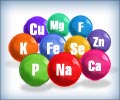Glossary
Anorexia: Eating disorder, where the patient goes through prolonged periods without taking food.Cortisol: The major natural glucocorticoid (GC) in humans. It is the primary stress hormone.
Ferritin: An intracellular protein that stores iron and releases it when required. Plasma ferritin is an indirect marker of the total amount of iron stored in the body.
Glossitis: Inflammation of the tongue.
Goiter: Enlargement of the thyroid gland.
Parathyroid Hormone (PTH): Also called parathormone, it is secreted by the parathyroid glands located next to the thyroid that regulates calcium and phosphorus levels in the blood and involved in bone remodeling.
Parenteral: Method of administering medication or nutrition other than via the digestive tract, such as intravenous, subcutaneous or intramuscular.
Thyrocalcitonin: A peptide hormone, also called calcitonin that is secreted by the parafollicular cells of the thyroid gland, which lowers the blood levels of calcium and phosphorus and promotes bone formation.
Thyroid Stimulating Hormone (TSH): A chemical messenger regulating thyroid activity and produced by the pituitary gland, in excessive amounts when the thyroid gland fails to respond because of under-activity.
Thyroxine (T4): Thyroid hormone that controls the pace of chemical activity in the body.
Triiodothyronine (T3): Thyroid hormone, having three molecules of iodine in its structure, which is similar to thyroxine in its function, but having greater potency.











